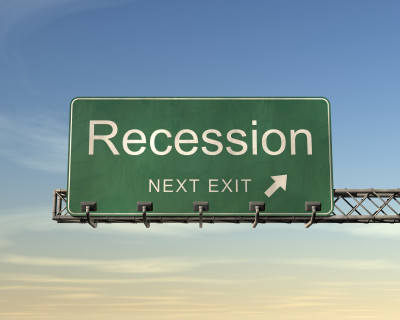Is recession closer than ever? Top economists weigh in
April 18, 2023
 With continuing inflation and the threat of recession on the horizon, it’s easy to see why so many transportation professionals share uneasiness over the future of the economy. In recent months, maneuvering from top monetary policymakers seems to have steered us away from the worst possible outcomes—for now. Still, the economy has fallen dramatically from recent heights. Robert Costello, Chief Economist for the American Trucking Associations, and Dan North, Senior Economist at Allianz Trade North America share the outlook that recession is almost inevitable.
With continuing inflation and the threat of recession on the horizon, it’s easy to see why so many transportation professionals share uneasiness over the future of the economy. In recent months, maneuvering from top monetary policymakers seems to have steered us away from the worst possible outcomes—for now. Still, the economy has fallen dramatically from recent heights. Robert Costello, Chief Economist for the American Trucking Associations, and Dan North, Senior Economist at Allianz Trade North America share the outlook that recession is almost inevitable.
The popular definition of a recession, defined as two consecutive quarters of GFP growth, has already been met in this economy. However, the conditions that make up the textbook definition of recession have not yet been reached.
“A recession is a significant decline in economic activity that is spread across the economy and lasts more than a few months,” explains North.
North’s definition for recession offers more leeway than a view that is strictly concerned with GDP over a fixed time. However you choose to define it, it’s hard to deny that current economic conditions are challenging for both employers and members of the workforce.
What are the consequences of higher interest rates on the transportation market? Watch the latest episode of the Stay In Your Lane Podcast to learn more.
The Federal Reserve continues to raise interest rates in response to inflationary pressures. Effects of this strategy to avert an outright recession are being felt at every level of the economy. The housing market is declining, as is manufacturing. The job market is also slowing as employers across the nation issue layoffs. Wherever you look, signs point to a significant turndown.
The services sector, which represents around 80% of the total economy, could be the saving grace of the economy at large. Still, even this area is beginning to slow. When isolated, other segments of the economy such as goods and manufacturing are already well into recession territory. This leads North and other experts to project a recession in the second half of this year. If previous trends hold, the coming recession could last for 2-3 fiscal quarters—or about 11 months.
The good news is that most measures of inflation have peaked. Year-over-year inflation is slowing. On the other hand, one of the Federal Reserve’s favored indicators of economic health isn’t faring as well. The personal consumption expenditures price index, also known as “core” inflation, is not reducing at a significant pace. This means more rate hikes from the fed are surely on the way, which could further slow the already struggling economy.
“The best-case scenario is that these very aggressive rate hikes from the Federal Reserve are going to do what they are intended to do,” says North. This means that inflation gives way and recession is averted. If they should fail, the consequences in important sectors, such as energy, could be dire. This would spell high prices at the pump and disaster for the transport economy.
Which carrier operations are more likely to feel the pain from inflation? Watch the latest episode of the Stay In Your Lane Podcast to find out.
The impact of interest rate hikes is already having an indirect effect on the transportation sector. Higher rates translate to less household spending, which in turn equates to less demand for the transport of goods. More directly, the effects of higher interest rates are being felt by carriers who took on debt in response to low equipment inventories.
“I think there are a lot of small and midsize fleets out there who play in the spot market and went out and bought expensive used equipment who are in trouble,” says Costello.
As Costello points out, many firms were quick to assume debt during the recent spot market boom. Now the bills are coming due under higher, variable interest rates while demand for freight is slowing. This could be a recipe for disaster.
“The reality is, there are going to be a lot of fleets out there that are going to have a difficult time servicing these loans,” Costello adds.
Carriers and shippers need every advantage they can get to survive in this economy. Triple T has the resources to help our customers ship any variety of freight with confidence and peace of mind via our nationwide carrier network. Solidify your position in the market—contact us today to learn more about partnering with Triple T Transport.














